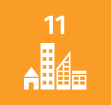Share the page
Applying sound management of chemicals and hazardous waste (uPOP)
Project


-
Project start date
-
Status
In progress
-
Estimated date of project termination
-
-
Project financing date
-
-
Financing duration
-
3 years
-
Type of program
-
FFEM
-
Global financing amount
-
9300000 €
-
FFEM financing amount
-
1000000 €
-
Country and region
-
Gambia
-
Type of financing
-
Grant
-
Beneficiaries
-
United Nations Development Programme (UNDP)
-
Type of beneficiary
-
International organisation





uPOP the project supported by the FFEM, provide innovative and sustainable solutions by improving the management of these polluting wastes. Despite its efforts, the Gambia is failing to effectively manage persistent organic pollutants, with adverse consequences for human health and the environment.
Context
Having ratified the Stockholm Convention on Persistent Organic Pollutants (POP) in 2006, the Gambia has struggled to fulfil its obligations. Obstacles have included a lack of data concerning electrical equipment in the country that may potentially contain polychlorinated biphenyls (PCB), and the failure to integrate international PCB management requirements into National Water and Electricity Company procedures. Furthermore, the development of municipal waste management systems has failed to keep up with demographic growth and urbanisation, and the practice of open-air waste burning has resulted in significant uPOP (unintentionally-produced Persistent Organic Pollutant) emissions.
Supported by the FFEM, this project aims to reduce the health and environmental risks of this pollution by providing sustainable global solutions for the sound management of POP and waste in the Gambia.
Description
The project has 4 components;
- Bolstering the legal framework and administrative procedures for the sound management of polychlorinated biphenyls (PCB) and reduction of unintentionally-produced Persistent Organic Pollutants (uPOP).
- The ecologically-sound managing of PCB and sites contaminated by PCB.
- Minimising uPOP emissions from open-air incineration of waste.
- Informing and raising awareness of the progressive elimination of PCB and uPOP emissions, while monitoring and evaluating the impact of these efforts.
Impacts
- The ecologically-sound elimination of 15 tonnes of PCB by decommissioning equipment containing these pollutant.
- Removal of 60 tonnes of oil contamination in soil, and other materials contaminated with PCB, following decommissioning and decontamination operations.
- 20% reduction in calculated national uPOP emissions compared to the emissions estimated when updating the 2019 national implementation plan (NIP).
Exemplary and innovative characteristic
Supported by the FFEM, this project is innovative and exemplary as it combines actions to manage and eliminate PCB alongside ensuring network functioning and reliability, while increasing local capacities to the benefit of the electricity company and its customers. As a result, the project is not perceived to be an additional unfinanced “environmental burden”.
This project is also pioneering in its willingness to provide holistic, sustainable waste management and resource recovery solutions with a view to reducing pollution resulting from inadequate waste management. These solutions involve engaging stakeholders in actions that will bring them immediate environmental and health benefits. In the long term, the project will also offer job and economic development opportunities. By relying on local resources, the project reduces dependence on limited external financing.
Sustainable Development Goals
ODD3 Good health and well-being

ODD6 Clean water and sanitation

ODD11 Sustainable cities and communities

ODD13 Climate action

ODD15 Life on land



